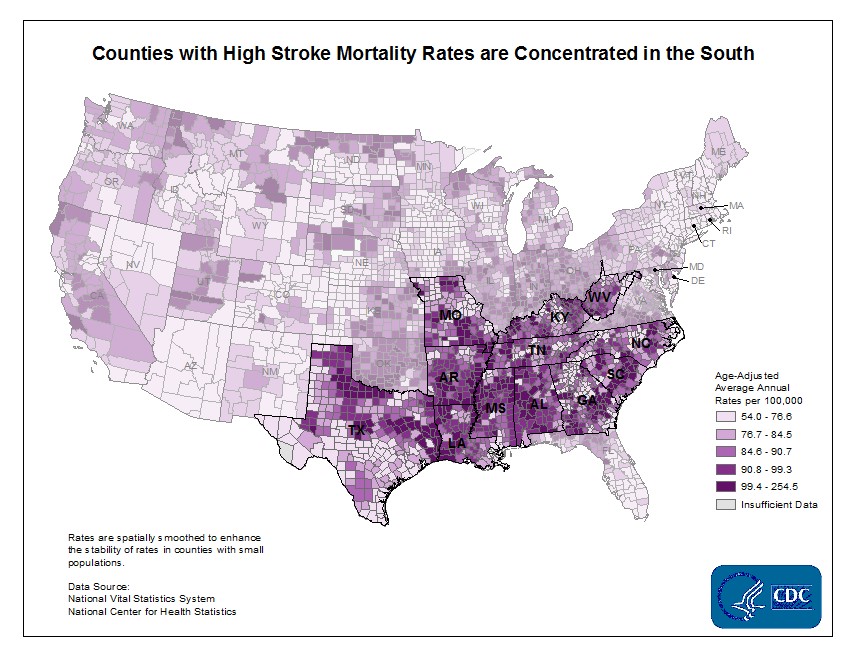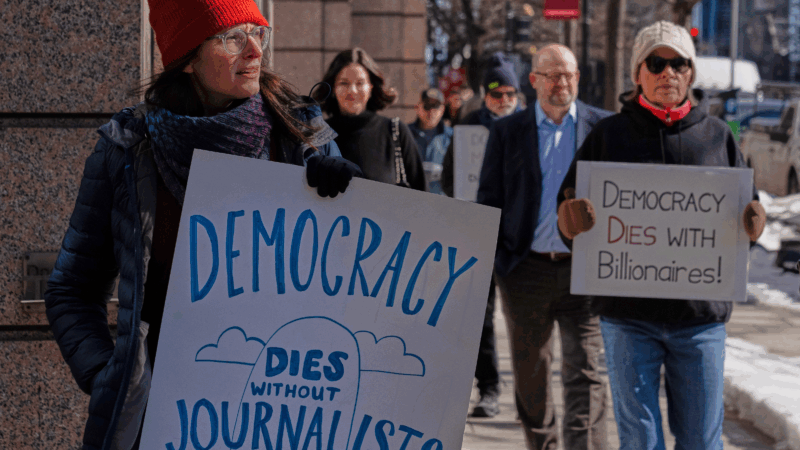UAB Researchers to Study Silent Strokes
A stroke is typically caused by a clot that cuts off blood supply to the brain, and when it happens, there are usually signs, such as facial drooping and slurred speech. But silent strokes, caused by smaller clots, are unrecognizable, according to UAB neuropsychologist Ronald Lazar.
“You have the same kind of signals, but they’re so small that, in and of themselves, each one does not cause symptoms that you’re going to recognize,” Lazar says, “But over many years, we think they do cause a problem.”
He says previous studies show that silent strokes increase the likelihood of having a larger stroke and of developing dementia. But in general, Lazar says there is a lack of research about the impact of these small neurological events and ways to prevent them. In a new study funded by the National Institutes of Health, he and fellow researchers at UAB and Stanford University hope to fill in some of the gaps.

Centers for Disease Control and Prevention
Alabama has one of the highest stroke mortality rates in the country.
The study, which is part of a larger national study called ARCADIA, will enroll 500 patients who have already had a stroke, and researchers will follow them for three years. During that time, participants will take a daily dose of an anticoagulant drug, either Aspirin or Apixaban. At the beginning and end of the study, investigators will use Magnetic Resonance Imaging to look for evidence of silent strokes. They will also conduct annual interviews to monitor for cognitive decline.
Lazar says they hope to improve understanding of how silent strokes might affect cognitive function overtime and study the preventative impact of both anticoagulant drugs.
“The fundamental goal is trying to minimize the occurrence of stroke in patients who might ordinarily be at high risk,” Lazar says.
For many U.S. Olympic athletes, Italy feels like home turf
Many spent their careers training on the mountains they'll be competing on at the Winter Games. Lindsey Vonn wanted to stage a comeback on these slopes and Jessie Diggins won her first World Cup there.
Immigrant whose skull was broken in 8 places during ICE arrest says beating was unprovoked
Alberto Castañeda Mondragón was hospitalized with eight skull fractures and five life-threatening brain hemorrhages. Officers claimed he ran into a wall, but medical staff doubted that account.
Pentagon says it’s cutting ties with ‘woke’ Harvard, ending military training
Amid an ongoing standoff between Harvard and the White House, the Defense Department said it plans to cut ties with the Ivy League — ending military training, fellowships and certificate programs.
‘Washington Post’ CEO resigns after going AWOL during massive job cuts
Washington Post chief executive and publisher Will Lewis has resigned just days after the newspaper announced massive layoffs.
In this Icelandic drama, a couple quietly drifts apart
Icelandic director Hlynur Pálmason weaves scenes of quiet domestic life against the backdrop of an arresting landscape in his newest film.
After the Fall: How Olympic figure skaters soar after stumbling on the ice
Olympic figure skating is often seems to take athletes to the very edge of perfection, but even the greatest stumble and fall. How do they pull themselves together again on the biggest world stage? Toughness, poise and practice.






